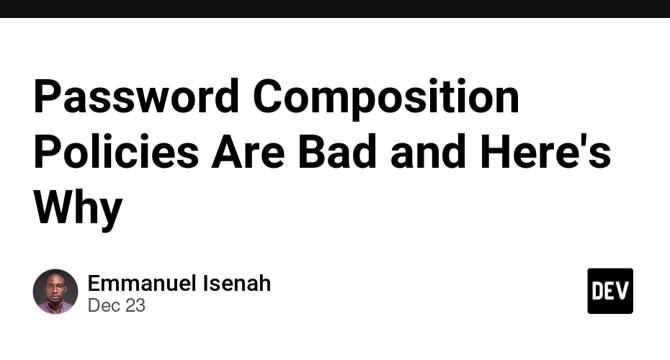Dev
1d
105

Image Credit: Dev
Password Composition Policies Are Bad and Here's Why
- Password composition policies are rules that dictate what constitutes an acceptable password to the user before they can proceed to create it.
- Requirements include a minimum length, a mix of uppercase and lowercase letters, numbers, and special characters.
- Research shows that users respond to these requirements in predictable ways when forced.
- Composition policies can fail to deliver their intended security benefits.
- Checking passwords against a blacklist is a more effective way to improve password security.
- Evaluating password strength, not complexity, is also useful.
- Length is the primary factor in characterizing password strength, so users should be encouraged to make their passwords as lengthy as they want.
- A significant subset of users still choose easy-to-guess passwords, like P@ssword1, that meet policy requirements but remain highly vulnerable to attackers.
- Improving password security can be done without sacrificing user experience.
- Multi-Factor Authentication (MFA) is also a useful option for improving security.
Read Full Article
6 Likes
For uninterrupted reading, download the app